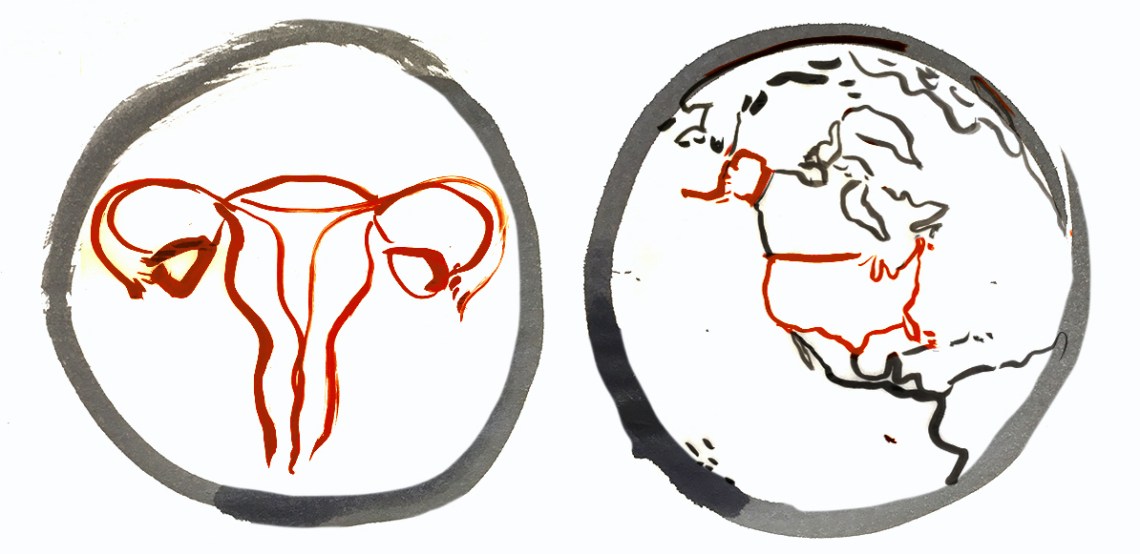When I read about the Supreme Court’s draft opinion that would overturn Roe v. Wade, a memory came to me of my mother with my father in the yard of our cinder-block home in Lowndes County, Alabama. They were talking to reporters about how my mother had been sterilized at the age of twenty-six. The operation took place four days before Christmas in 1965, at John A. Andrew Hospital in Tuskegee, Alabama, where she had just given birth to my younger brother. My mother was poor, and Black, and I was seven when her right to have children was terminated as part of a federally-funded program that sterilized women who were unable to pay for pre- and postnatal care. It was shocking and frightening to hear her account. Most women didn’t talk about what they’d experienced, but in 1973, after the Southern Poverty Law Center brought suit on behalf of two teenage sisters in Montgomery, my mother organized other victims of the program to come forward with their stories.
I had thought of my mother when I found myself in a terrifying and vulnerable position two years ago. I had surgery at a hospital in Montgomery, Alabama. During the surgery the doctor, a man, accidentally cut the vein to my spleen, and sent me home without informing me of his life-threatening mistake. When I complained of pain, his nurse instructed me to take an over-the-counter painkiller. Six days after being released, I returned to the hospital’s emergency room short of breath and barely able to walk, only to learn that I had pneumonia and my spleen was dying inside of me. The hospital staff on duty delivered this grim news to me at midnight. I was left with no choice but to let the same surgeon who destroyed my spleen remove it.
That ordeal showed me how little regard the medical system has for my life, too. There was no law to protect me. Like so many women perilously navigating their own healthcare, I had to endure the fear of the unknown because this doctor, who is still working as a surgeon, held my life in his hands, and didn’t value it more than his job. In this country, that same disregard has meant that Black and Native women are two to three times more likely than white women to die from their pregnancies.
This draft opinion laughs at the promise of equality and equal protection for all under the law. It underscores the hypocrisy not only of our view of life, but also the reality of who gets to control the quality of life before and after birth.
During my journey as an environmental activist, I have witnessed disregard not only for human lives, but for future generations. During my recent visit to Revere, Louisiana, I saw a petrochemical plant located next to an elementary school. Where was the regard for life? In Mount Vernon, New York, families had complained for more than twenty years about sewage running back into their homes, but there was no regard for their lives or their children’s lives. In Lowndes County, sewage is running into, under, and outside homes, but there is no regard for life. At Standing Rock, I joined Sioux protestors who were fighting to protect their tribe’s water source, the Cannonball River, from contamination by the Dakota Access Pipeline. State police and the National Guard met their peaceful demonstration with tanks and tear gas.
The sobering truth is that by ending Roe v. Wade, the Supreme Court wants to hand over control of women’s bodies to state governments that support policies that poison water and pollute the air. These same state governments are content to build more prisons and keep women barefoot and pregnant, while restraining the earth’s ability to sustain life. If this decision holds, all women, like my mother, will be subject to their whims, while society bears the burden of this inequality. To prevent this backward slide, we must register and cast our votes for a just society, free of laws that relegate women to second-class citizenship. But when the government does not act in our interest, we must defend our lives by other means—by protest, by investigation, by lifting up the narratives of those at risk, as my mother did.


